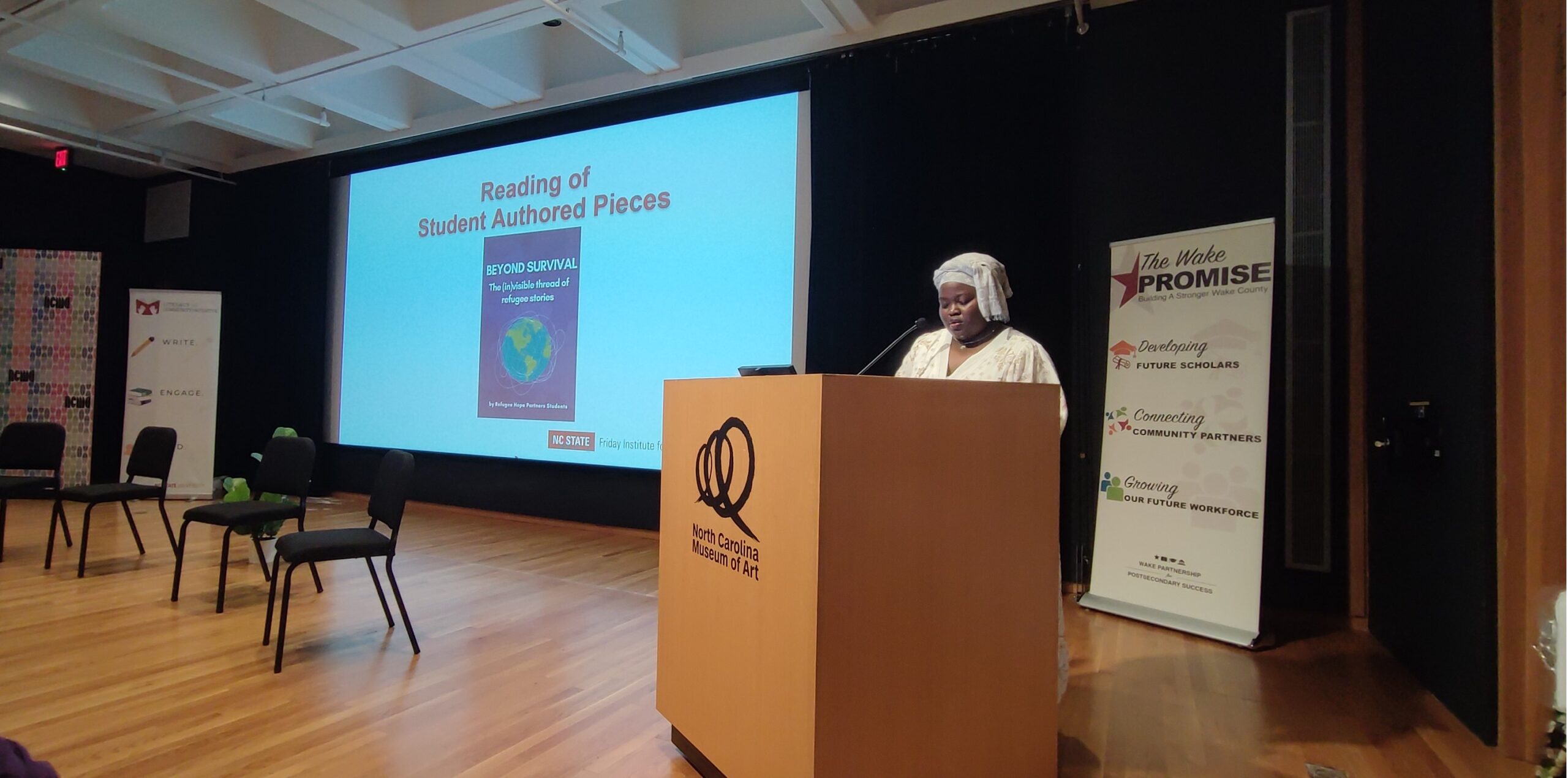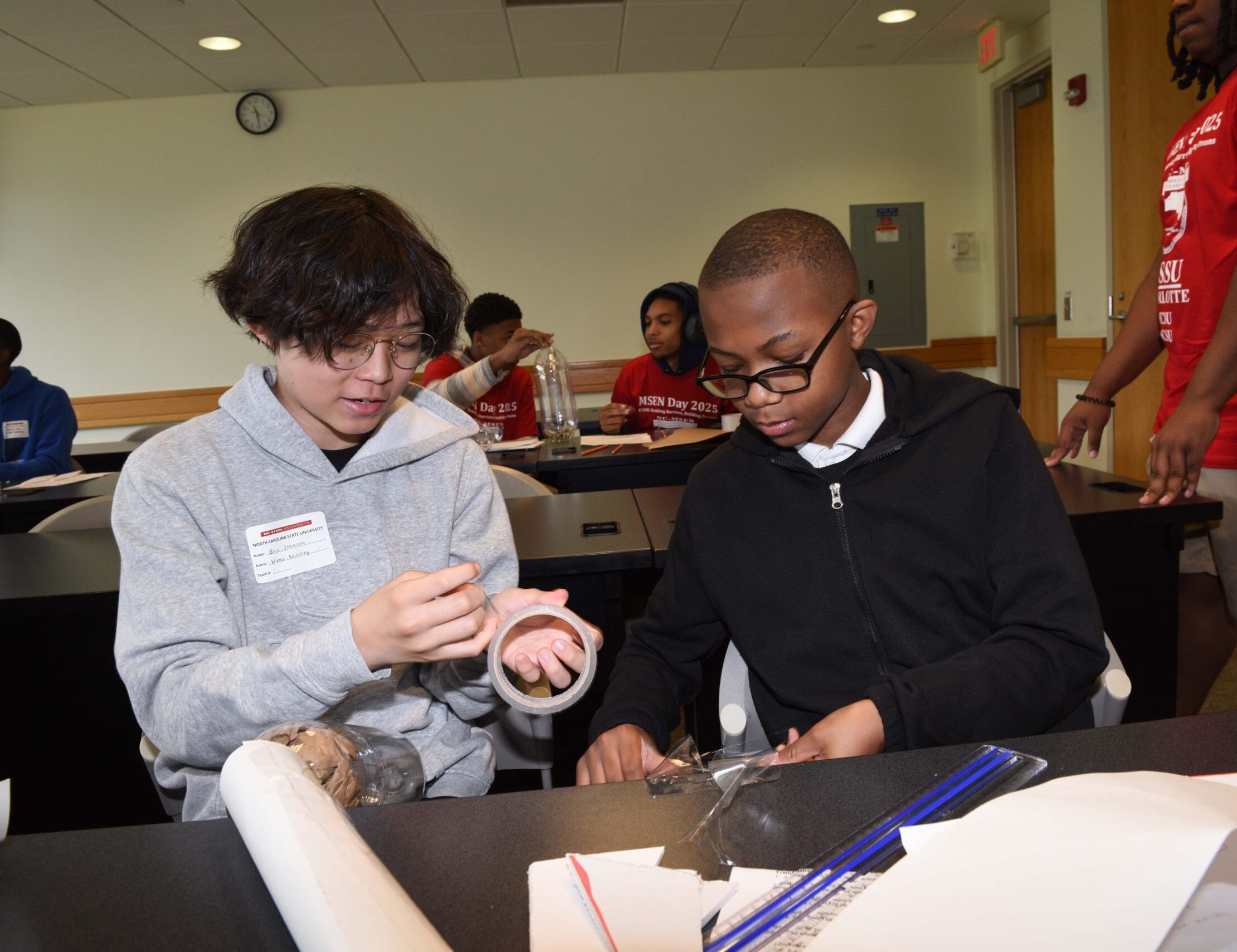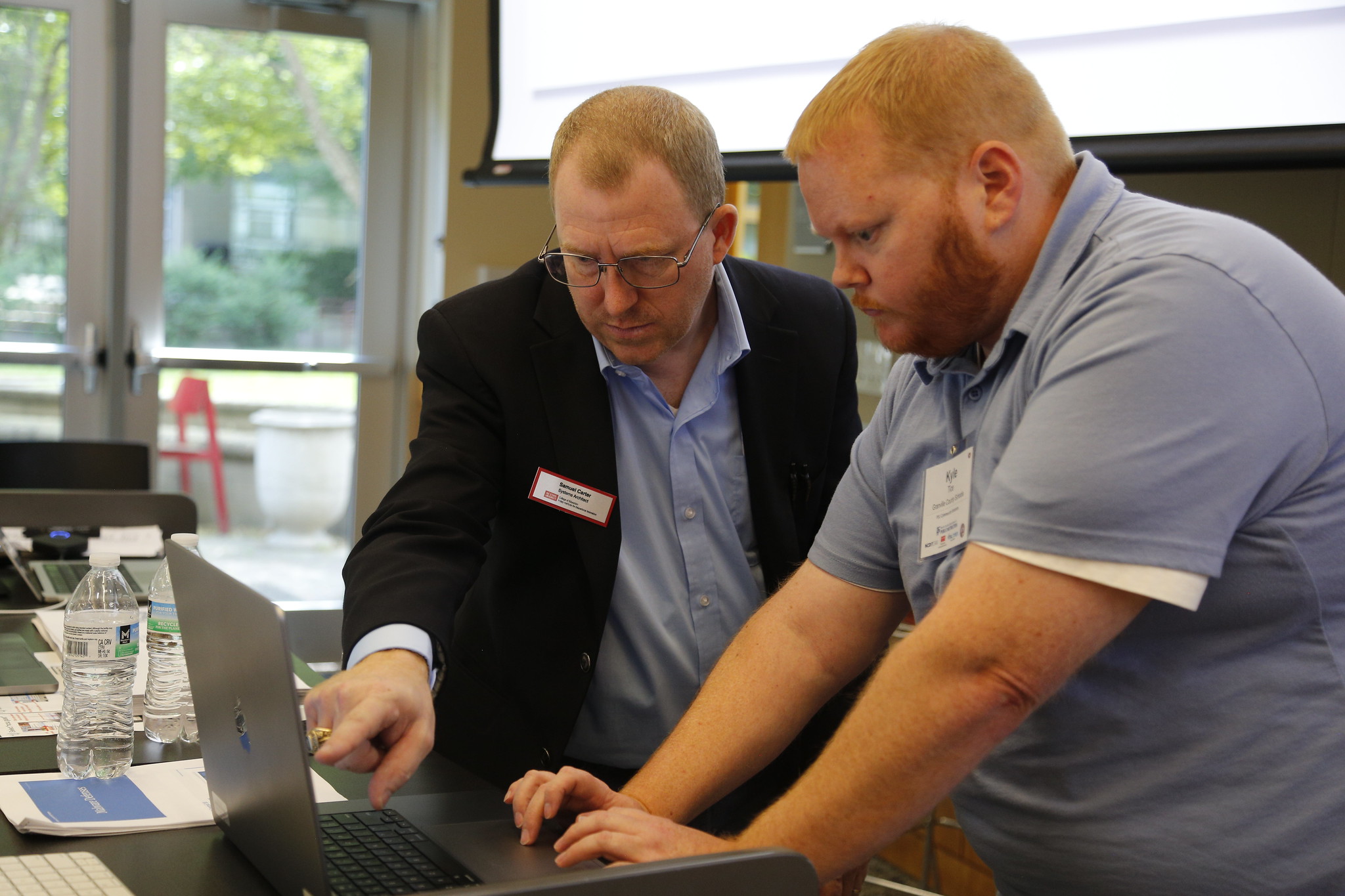Friday Institute Forges a Path in Online Professional Learning

Nine years ago, the Friday Institute for Educational Innovation launched a new initiative focused on meeting the growing needs of schools and equipping educators with research-based professional development. Through free, online professional learning courses, formerly known as Massive Open Online Courses for Educators (MOOC-Eds), the Friday Institute set out to provide large-scale, collaborative professional development resources in flexible formats.
“Our online professional learning program responds to the ever-changing needs of educators, providing them with valuable content and fostering collaboration with other education practitioners,” said Hiller Spires, Ph.D., executive director of the Friday Institute and associate dean at the NC State College of Education. “It’s part of the Friday Institute’s larger commitment to improve education through innovation.”
Since the project’s inception, online professional learning at the Friday Institute has served more than 76,000 educators in 50 states and more than 160 countries. With the onset of COVID-19, the project saw a tenfold increase in participants in the spring—serving more than 25,000 participants and making 2020 the project’s most successful year of courses.
Leading the Transition in 2020
When whispers of a new virus in early 2020 snowballed into global shutdowns by March, educators scrambled to keep up. The pandemic not only pushed educators to shift course content online; it also forced them to modify teaching styles and keep students engaged on different platforms—and in a different world.
The Friday Institute stepped on the gas.
“Educators needed our support more than ever before, so in about a month, we built a new course on teaching remotely,” said Mark Samberg, Ed.D., former director of technology programs for the Friday Institute. “It gave teachers a lot of resources for teaching online, and it was designed to be extremely practical. Sure, there’s theory out there about good online learning, but a year ago, we didn’t have any theory about good online learning amidst a pandemic and mass closures. That didn’t exist.”
To support the transition to remote learning, the Friday Institute launched the course “Teaching Remotely: A Practical Guide,” which has had more than 15,000 total participants. They also extended registration dates and deadlines, expanded course offerings and refreshed its Teaching Mathematics with Technology course to support online instruction.
Between March and July 2020, 18,000 new participants enrolled in the Friday Institute’s online professional learning courses, including 7,000 participants in Teaching Foundational Reading Skills and 10,500 participants in Social and Emotional Learning (SEL) for Educators. Around 4,800 of these enrollments were in North Carolina alone.
“Our posture has always been to support educators with credible resources for teaching and learning, and when schools across the state, country and globe shut down to slow the spread of COVID-19, we committed ourselves to making our resources as relevant and accessible as possible,” Spires said.
Building Momentum
When Glenn Kleiman, Ph.D., former executive director of the Friday Institute, and Mary Ann Wolf, Ph.D., former director of the Friday Institute’s Professional Learning and Leading Collaborative, first launched the initiative, they recognized a need for a course on digital learning.
Launched in 2013, “Leading the Digital Learning Transition” prepared K-12 educators for a changing world, helping them plan digital learning initiatives and integrate technology and digital learning tools effectively into the classroom.
“We had a good read on the field, a group of deep content experts and a solid team of design practitioners, so we knew that we were well positioned to develop these courses,” Samberg said. “But when we had 2,500 people involved in the first course, that’s when we knew the project had legs.”
After an enthusiastic response to the first course, the Friday Institute approached the William and Flora Hewlett Foundation and received a grant to launch five additional courses. Then, through funding from the Oak Foundation, they launched another course on learning differences and social-emotional learning.
With additional grant and foundation funding, the Friday Institute expanded its slate of courses to equip K-12 educators with research-based content around a wide variety of topics including K-8 English learning, mathematics for young children, high school computer science and foundations of learner agency.
Since launching, the Friday Institute has offered 18 public courses, 12 modules and a number of one-off online components of blended experiences to educators around the world.
“Every year, I do a substantial number of MOOCs for professional development,” says Matthias Giger, a secondary teacher in Switzerland. “Among those MOOCs, the ones by the Friday Institute shine because they cover current subjects I’m interested in, such as using computing devices in teaching and learning.”
Designing an Experience
This commitment to meet educators where they are has not only given shape to the course content. It has also shaped course design.
While the courses include core components and research-based content for each topic, they aren’t focused on grades and don’t have a fixed path, like other MOOCs. Instead, they encourage self-directed learning that allows educators to engage with the content they need to meet their goals—however these evolve during the learning process.
“The most valuable aspects were the high-quality core resources and the self-paced structure of the course,” said David Reep, chief information officer at Avery County Schools. “Being able to engage with quality articles and videos and do so when it fits my schedule is a recipe for great professional development.”
Combining theory and best practices, the courses are intended to be job-embedded for educators in a wide variety of settings. With actionable strategies, the courses encourage participants to put the content into everyday practice.
Additionally, the courses build in peer support through discussion forums and professional learning community guides, expanding the impact of courses beyond individual teachers to schools, districts and online networks.
“The courses provide valuable insight into teaching practices on different continents and promote an exchange of ideas among teachers,” says Giger.
Since launching the online professional learning initiative, the Friday Institute has regularly evaluated its platforms and design formats to ensure they complement the course content.
“Designers and content experts work together to create a learning environment that most effectively serves the course topic,” says Alex Dreier, associate director for online learning at the Friday Institute. “The options are endless. Most online learning environments don’t offer this kind of flexibility.”
Expanding the Impact
In evaluating the efficacy of online professional learning, the Friday Institute recognizes that completion rates aren’t the only metric for success.
“At the end of the day, that’s not the thing we most care about,” Dreier said. “We want to ensure that educators find the courses useful in their practice and day-to-day work.”
To determine the impact of the courses on educators’ professional goals, the Friday Institute conducted considerable research, including an evaluation of seven courses developed with funding from the Hewlett Foundation.
“One of the main goals of our evaluation work for online professional development was to assess the extent to which principles of high-quality professional development could be successfully replicated in settings like MOOC-Eds,” said Shaun Kellogg, Ph.D., senior director for the Friday Institute’s program evaluation and education research group. “The findings from our research and evaluation efforts consistently suggest that educators view these offerings as both high-quality and valuable for supporting positive change.”
Participants in the Friday Institute’s seven Hewlett-funded courses reported improvements in critical thinking, problem-solving, student collaboration and self-directed learning among their students. Additionally, educators reported the impact of the courses on their professional practice.
In surveys and feedback forms, 92% of respondents indicated that courses were effective in supporting their personal and professional learning goals, 91% indicated that the courses supported application to their practice and 85% indicated that the courses promoted constructive peer interaction.
“For most participants, the impact involved the application of a new resource or instructional strategy learned in the course or sharing their learning with other educators,” Kellogg said. “For others, participation in the course led to more comprehensive changes in their professional practice, including major revisions to curricular materials and the development of local professional learning activities for colleagues. It’s also notable that three to six months following the course, 86% of participants reported applying what they learned, regardless of the extent of their participation.”
Looking Forward
Looking ahead, the Friday Institute is working to provide even greater personalization to the online professional learning formats, especially by building upon its “anytime, anywhere” design principle.
With data showing that most course participants engage with content during shorter periods of time, such as lunch breaks, the team is exploring additional opportunities to provide educators with formats that aren’t time-bound—especially as the demand for just-in-time learning opportunities continues to grow.
“Our team has made a concerted effort over the years to develop these formats, but we still have some opportunities that involve blocks of time,” Dreier says. “So we’re playing around and pulling things apart, seeing what adaptations we can continue to make. We’re working to develop a menu of options from which educators can choose, allowing them to get what they need whenever and wherever they need it.”
For its recent pilot project, the Friday Institute has provided funds to explore new formats with a course on culturally responsive, culturally relevant and culturally sustaining teaching that Friday Institute Research Scholar Patricia Hilliard, Ph.D. is in the beginning stages of developing.
“I was eager to spark the exploration of new formats and highlight content that aligns with the Friday Institute impact area of educational equity,” said Spires.
The course aims to advance diversity, equity and inclusion in schools by helping educators understand that this approach to teaching benefits every student in the classroom.
“The course content is less about strategies to implement—it’s much more introspective,” Hilliard said. “It involves looking at your attitudes and values, your approach to teaching, the ideologies you hold, the different strength-based or deficit-thinking that you have. You’ll uncover it, explore it and reflect upon it.”
The nature of this content, she says, calls for a more flexible, personalized learning environment, as it focuses on mindset rather than behavior. Additionally, offering a more personalized learning environment serves a variety of course participants.
“Some educators have more time than others, and some have more background knowledge than others,” Hilliard said. “So we want educators to be able to come in and complete every single thing we offer or opt to learn a little more about one specific topic, like microaggressions, and have the option to stack them. We want them to design a learning experience based on their specific needs.”
“I like to think of it as the ‘Peloton approach’—whether you want a five-minute stretch or a 30-minute class, you can create whatever experience you want,” Hilliard said.
For the Friday Institute, online professional learning has been a wild ride, providing resources to thousands of participants every semester across multiple time zones.
And they’re just getting started.
“As we look to the future, the Friday Institute is building on this foundation of improving education through credible resources and collaboration,” Dreier said. “As the needs of educators continue to evolve, we’ll be right there with them, supporting their professional learning with the content and formats they need most.”


